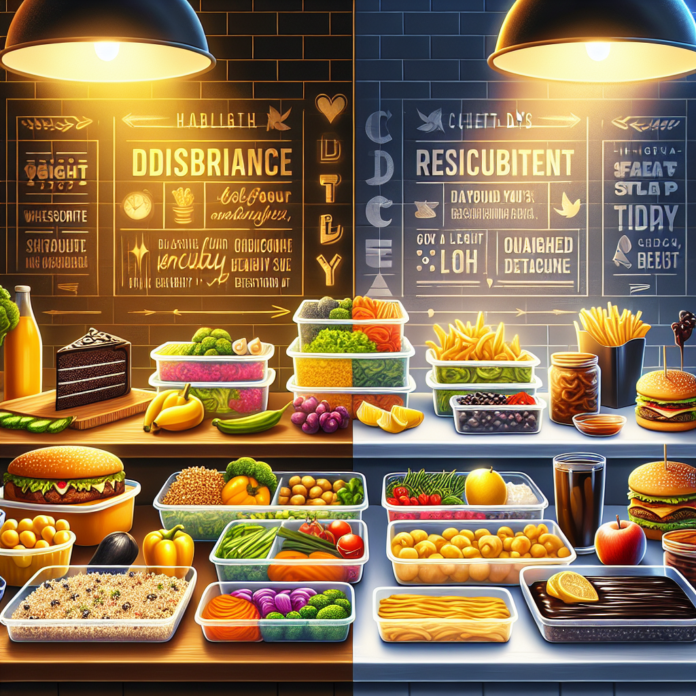The Importance of Cheat Days
One of the most common questions I receive is why I choose to include cheat days in my diet plan instead of adhering to a strict and consistent eating pattern. The truth is, maintaining the same caloric intake and activity level indefinitely proved unsustainable for me. After losing 130 pounds—an achievement I’m sincerely proud of—my body began signaling that it needed more support than just a consistent calorie count could offer.
Physical and Mental Impact
When I stuck to a rigorous diet, eating precisely 1619 calories daily while balancing 50 minutes of cardio five days a week plus weight training, the immediate physical side effects were unmistakable. I found myself lacking energy, a crucial factor when you’re lifting weights and leading an active lifestyle. More insidiously, my sleep pattern took a hit; rest became restless nights and constant fatigue. This wasn’t just inconvenient; it was a cycle that impacted my overall well-being.
Depleting my glycogen stores also brought about uncomfortable digestive issues, such as constipation and bloating, making it difficult to gauge progress on the scale accurately. Without the occasional cheat day, my body’s ability to maintain muscle mass started to dwindle. I’d find myself at a standstill in my fitness journey, feeling weaker and unable to witness tangible results despite my hard work.
The Mental Relief of Cheat Days
Mentally, the effect of a stringent, monotonous diet plan can be equally crippling. Restrictiveness often leads to triggers for emotional eating behaviors—an issue I have battled in the past. Maintaining a rigid diet without allowing flexibility built up cravings that were hard to resist, pushing me towards unplanned indulgences. It became clear that legalizing foods and incorporating cheat days into my lifestyle was not just advantageous but necessary.
Evolution of My Cheat Days
Cheat days, or as I sometimes refer to them as “diet breaks,” are integral to my journey not only because they reenergize my physical body but also because they boost my mental fortitude. Reducing food guilt and legalizing treats have helped prevent the emotional eating that once controlled my relationship with food. As I began allowing myself these breaks, the compulsion to overeat out of guilt started to fade, enabling me to enjoy my cheat meals without the need to overindulge.
Over time, the frequency and nature of my cheat days have evolved. Initially, Kyle (my partner in this journey) and I found ourselves integrating cheat days weekly, simply because we were still learning to balance our structured eating with life’s temptations. These days served as a relief from our disciplined regimen but required adjustments as we progressed.
Strategic Integration for Lasting Success
Now, we tailor our cheat days according to our goals, such as muscle bulking or cutting phases. During bulking periods, those calorie-dense cheat days are more frequent, whereas, during cutting phases, they’re replaced by what we call “boosts.” These boosts include a strategic indulgence, typically a dinner of our choice followed by a dessert, all within the confines of our dietary framework. They aren’t random; they are planned periods of dietary relaxation designed to kickstart motivation and break any plateaus.
Celebrating Without Guilt
One of the pivotal lessons we’ve learned is the importance of celebrating occasions without the shackles of diet guilt. In moments like holidays, allowing ourselves a day and a half to indulge ensures we aren’t left feeling deprived. Through trial and error, we’ve witnessed firsthand how denying ourselves can lead to uncontrollable binges, which then spiral into long periods of deviation from our goals.
Conclusion
Cheat days have morphed from opportunities for unrestricted eating into planned parts of our lifestyle. They grant us the mental and physical reset necessary to keep us progressing toward our fitness objectives. They’ve taught us control and have empowered us to enjoy our favorite foods without fear of relapse into old patterns.
In conclusion, incorporating cheat days is more than an allowance for indulgence; it’s a strategic tool that contributes to a balanced, sustainable lifestyle. It bridges the gap between maintaining a healthy weight and enjoying the culinary pleasures life offers. By redefining my relationship with food from one of control to one that includes flexibility, I’ve found a rhythm that not only maintains my weight loss but enhances my quality of life. If you are on a similar journey, consider embracing the strategic cheat day—not as a moment of weakness but as a smart strategy to fuel both body and soul on the path to long-term health and happiness.
